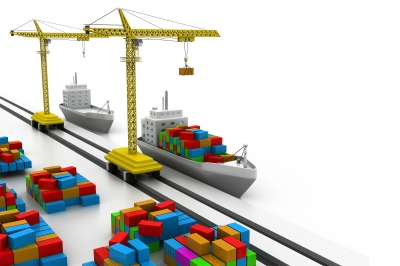Senate Minority Leader Franklin Drilon vowed to block the 2018 budget of the Bureau of Customs (BOC) if the administrative order (AO) implementing pre-shipment inspection (PSI) on bulk and non-containerized shipments arriving in the Philippines is not amended to cover containerized cargoes.
“We make of record the position of the minority leader. We will oppose the approval of the budget of the Bureau of Customs unless this administrative order is amended—which amendment has been pending for I don’t know how long—in order that we can immediately address the issues of these contraband drugs passing through our customs,” Drilon said at the interpellation of the proposed P3.105 billion 2018 budget of the agency on October 6.
“I have no qualms in saying that I have not opposed the approval of any budget here in my 19 years. But this time I will put my foot down,” he added.
Drilon had proposed in a September 11 Senate Blue Ribbon Committee to amend AOs 243 and 243-A to allow containerized cargoes to be covered by the PSI. The AOs created the system for the bulk and breakbulk cargo clearance enhancement program of BOC.
READ: PH bill extending mandatory PSI to containerized imports being drafted
Under the current program, bulk and breakbulk cargoes for export to the Philippines must be inspected at the port of origin by an accredited surveying company for quality, quantity, and dutiable value.
In an ambush interview, Drilon reiterated his position, adding that the smuggling of 604 kilograms of shabu (methamphetamine hydrochloride) could have been prevented “if the amended administrative order was in existence at that time because there would have been a pre-shipment inspection.”
Drilon was referring to the P6.5 billion worth of shabu that slipped past BOC last May without being detected. The shipment was discovered and seized from a warehouse in Valenzuela a few days after release from customs, thanks to an intelligence report provided by the Chinese customs.
Drilon said that if PSI had been implemented then, the contraband would have been “caught immediately at source or country of origin.”
Bulk and break cargoes account for 65% of the country’s total importation volume, while the remaining 35% refer to containerized cargoes, he added.
Drilon said that the PSI program for bulk and breakbulk, which is now in its seventh year of implementation, has been effective in curbing smuggling and corruption.
Hence, the lawmaker said, its coverage should be expanded to include containerized cargoes, which he said are now being used to transport drugs and illegal goods.
Drilon said the pre-shipment inspection of containers is a “recognized way of thwarting smuggling,” as it will prevent the entry of illegal, fake, substandard, and misdeclared goods into the country by stopping them at the country of origin.
Drilon expressed confidence that PSI for containerized cargoes can help minimize the entry of drugs and other illegal and substandard goods in the Philippines, increase government revenue, and thwart smuggling and corruption.
“The BOC must realize the value of amending this administrative order in order to put a stop to the problem of smuggling and entry of shabu into our ports as soon as possible,” Drilon said.
Drilon said the Senate Finance Committee agrees that the PSI is an important measure and vows to provide funds for it.
“They have agreed that it is worth the expense and the chair of the committee on finance agreed that we should be able to come up with a budget,” he said.
Controversial plan
Back in 2014, BOC had signified its intention to impose PSI, also called load port survey, on containerized and non-containerized cargoes. But the plan became controversial as groups debated on who should pay for the service, with some suggesting that the government subsidize the inspection fee to reduce stakeholders’ costs.
The plan was shelved when the port congestion crisis developed that year.
Then this year it was mooted about again by the team of former Customs commissioner Nicanor Faeldon. A public consultation with accredited surveyors, stakeholders’ organizations, and companies had in fact been called on May 17, 2017 in which a draft presidential administrative order that extends the LPS program to containerized cargoes was handed to stakeholders.
READ: PH revives plan to require pre-shipment inspection on containers
Buhay Party-list representative Lito Atienza earlier filed House Bill No. 6220, which calls for the compulsory advance clearance of all foreign cargo headed for the Philippines.
The lawmaker had earlier pushed to include mandatory PSI in the Customs Modernization and Tariff Act.
Image courtesy of bluebay at FreeDigitalPhotos.net






